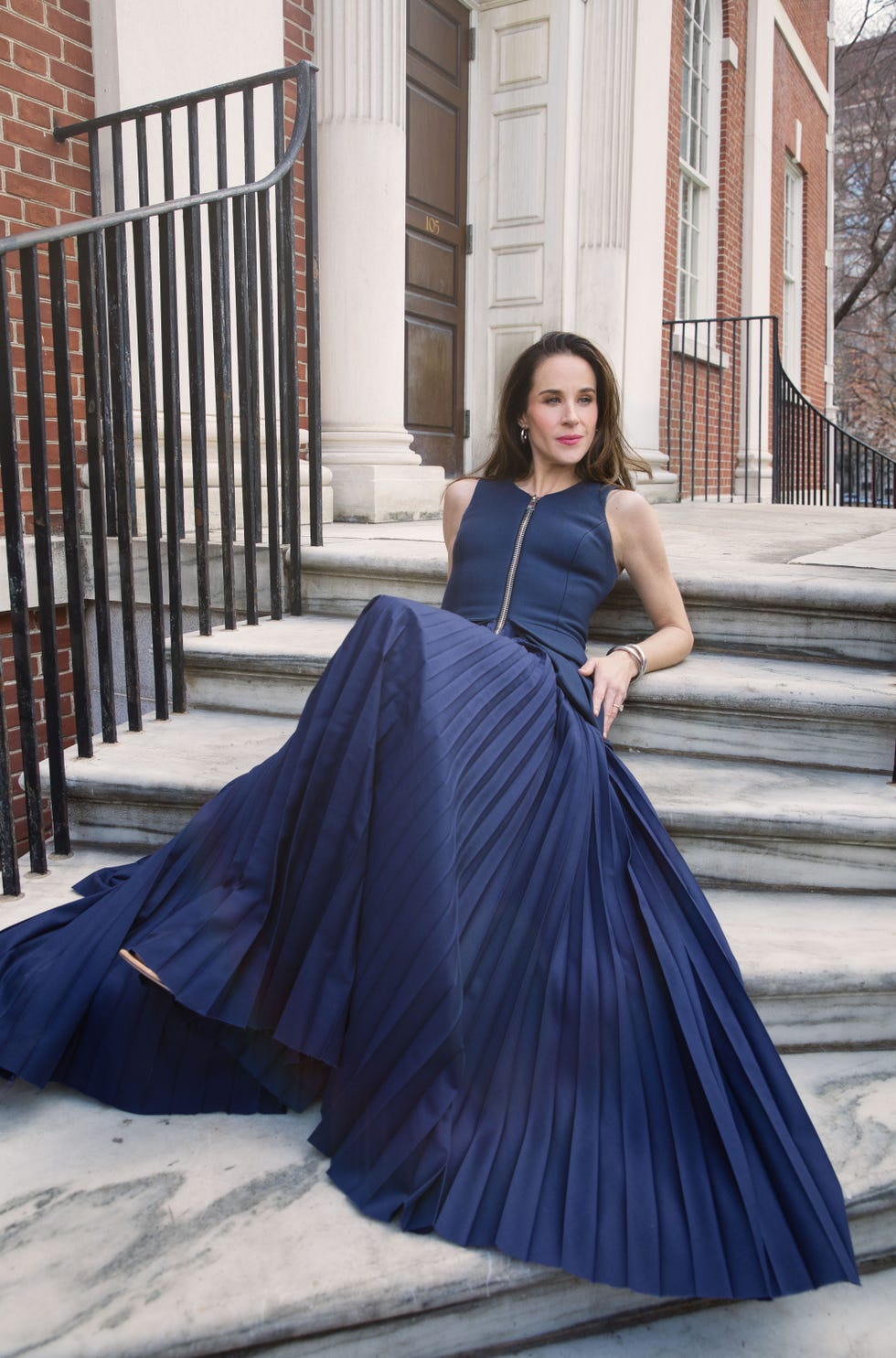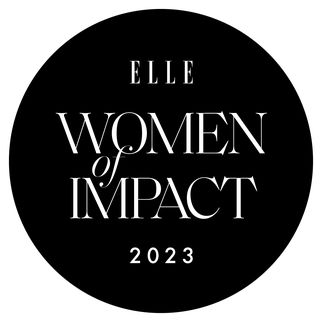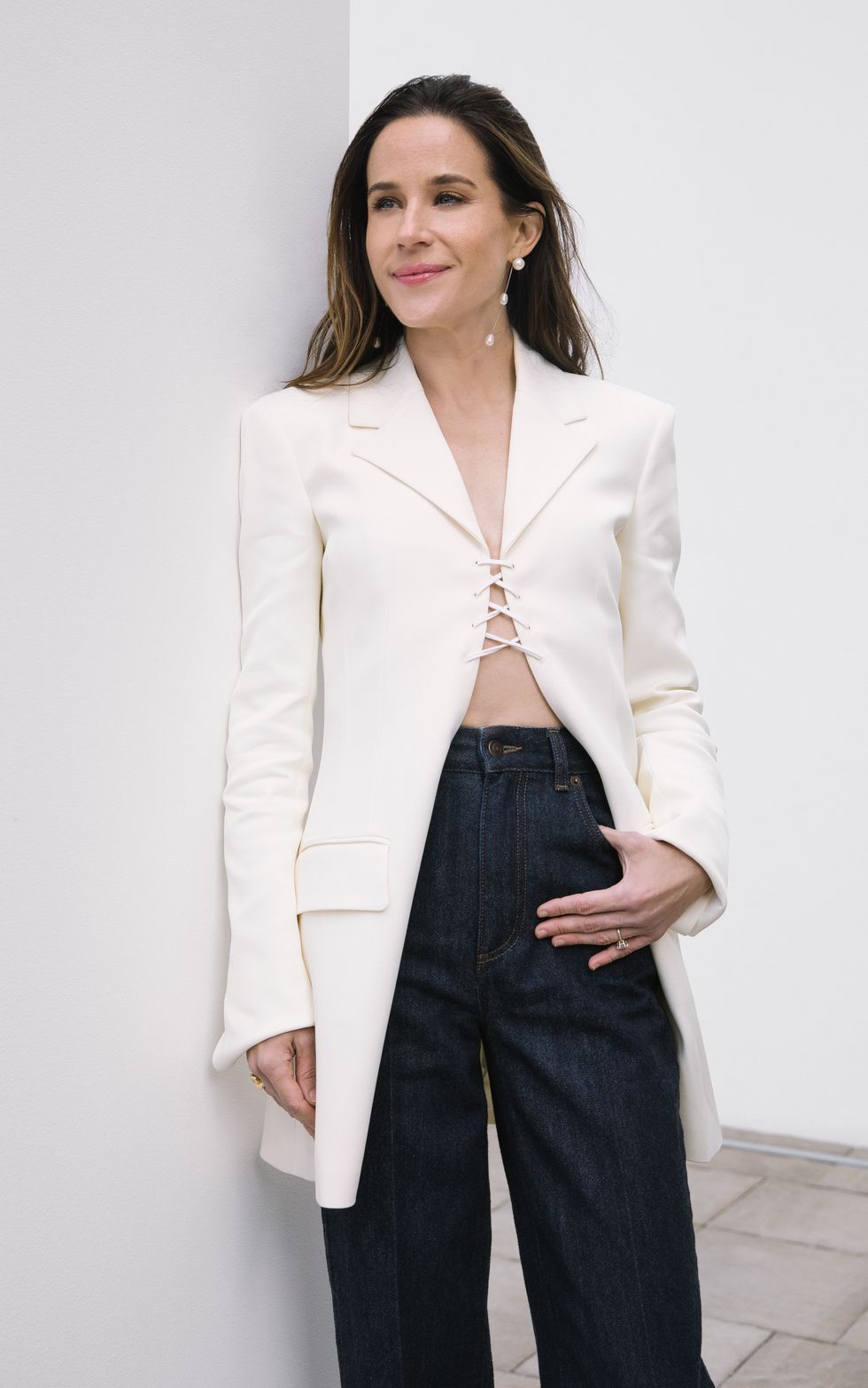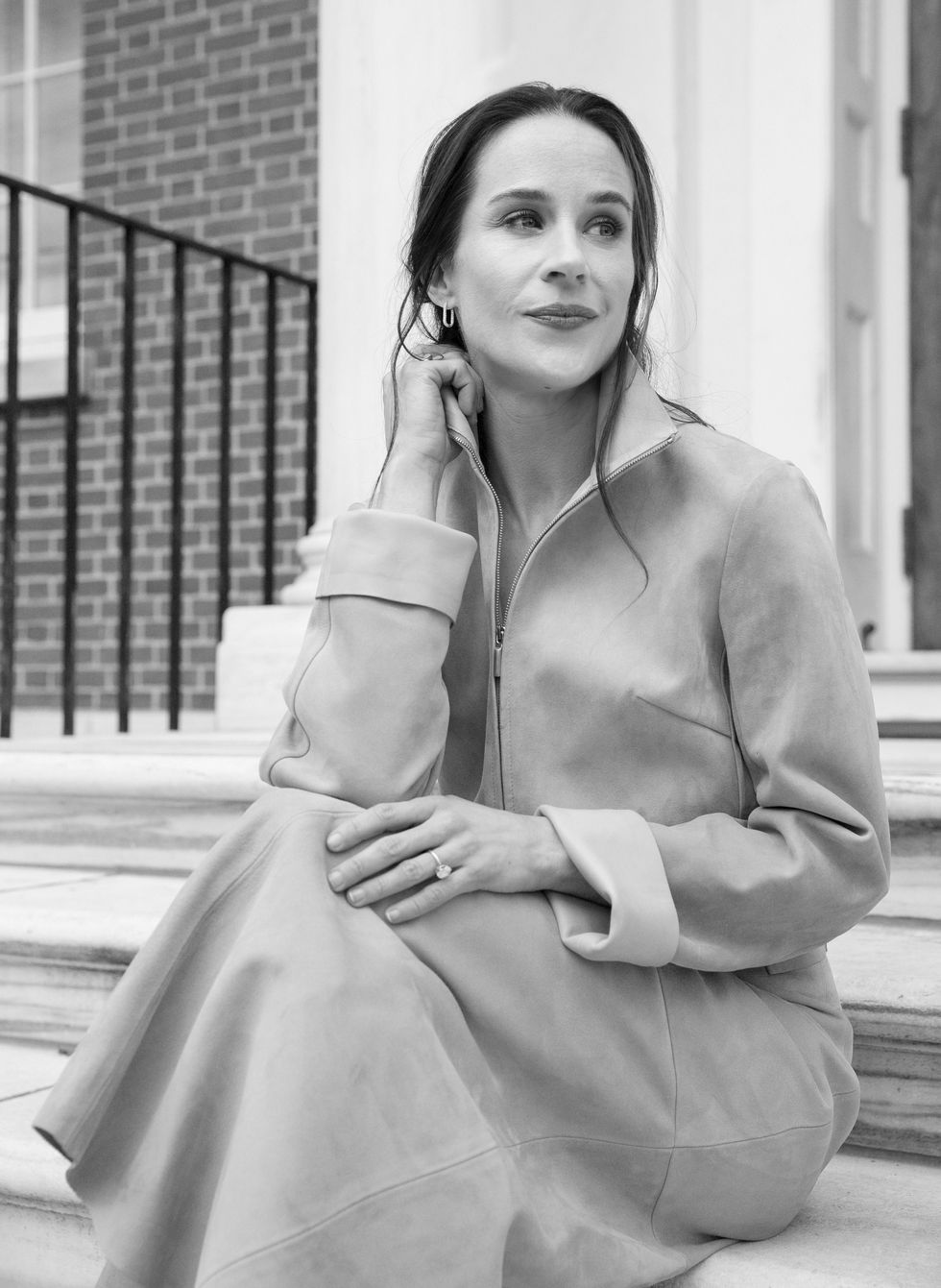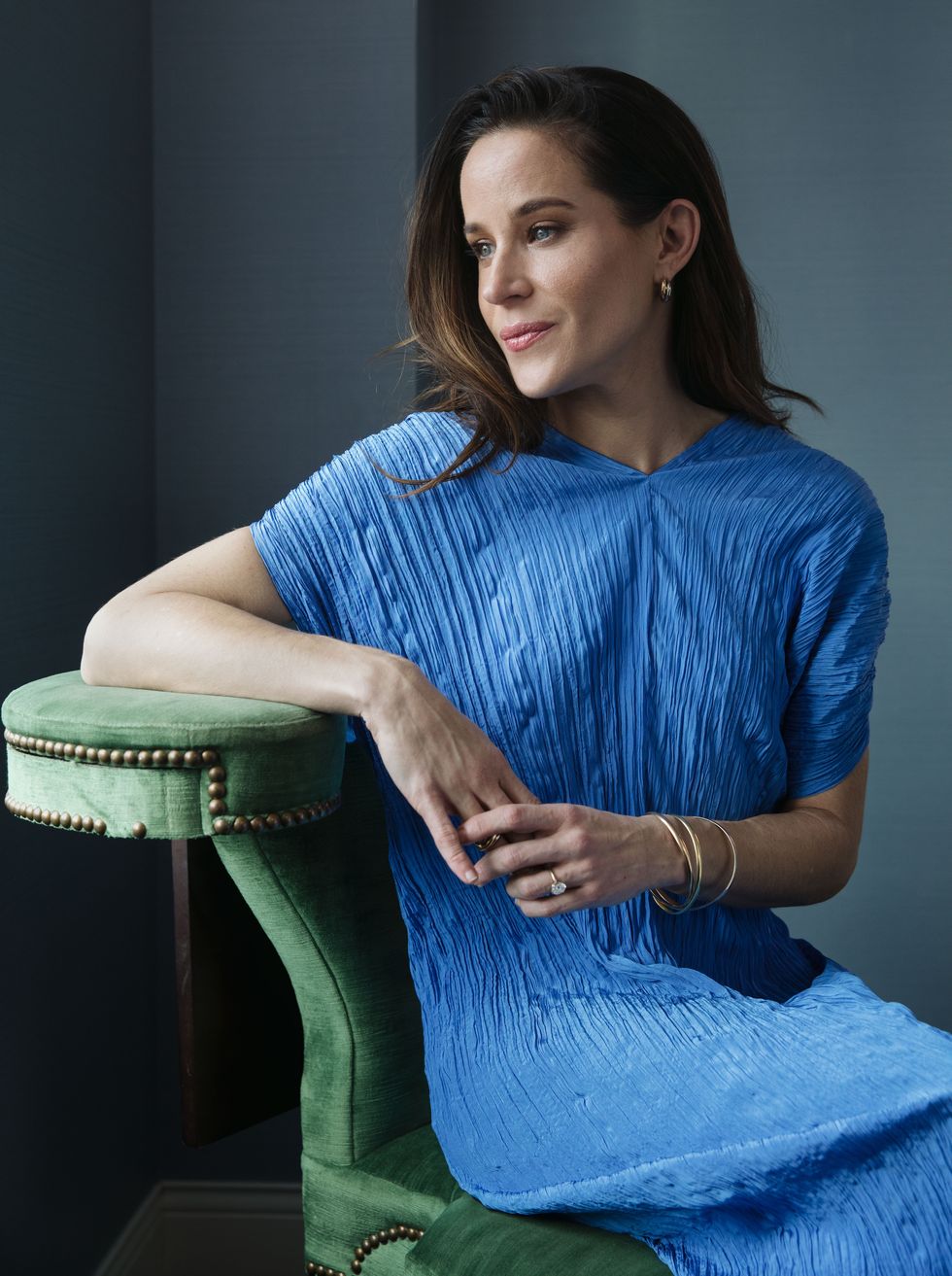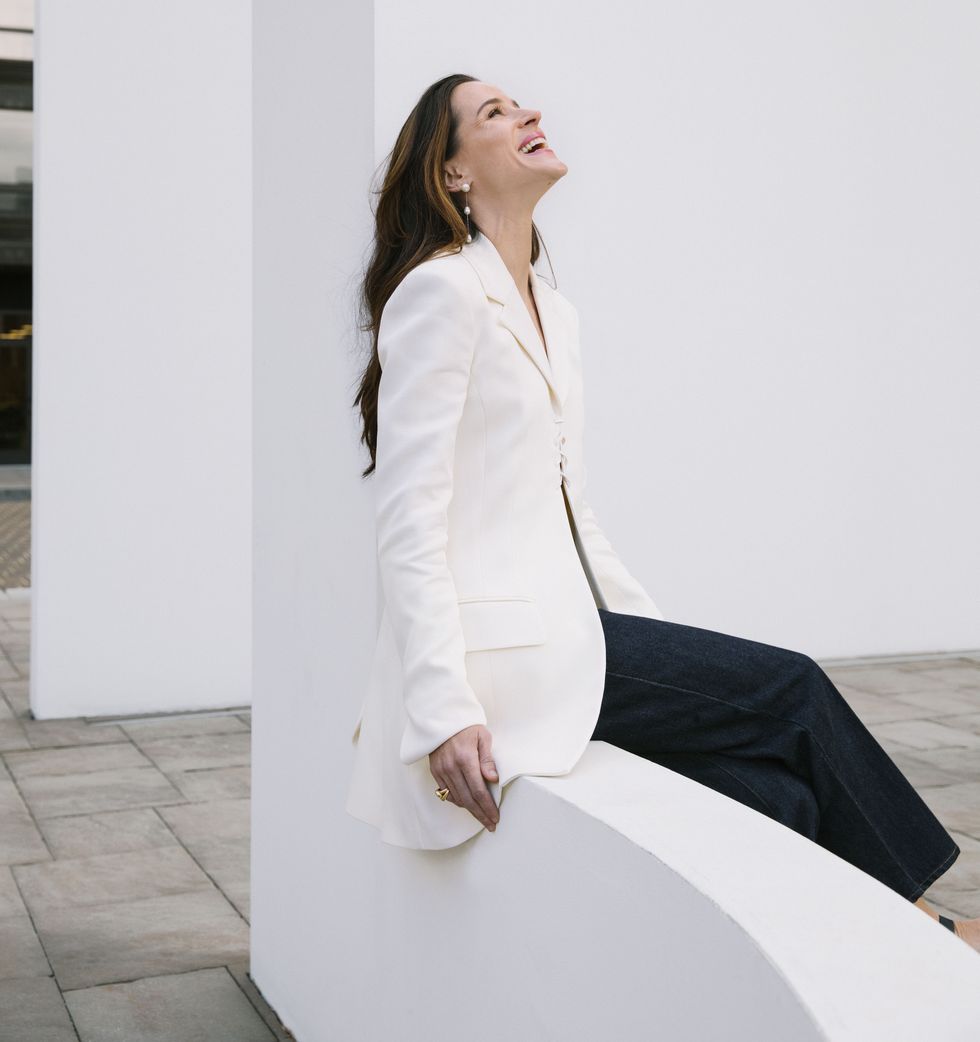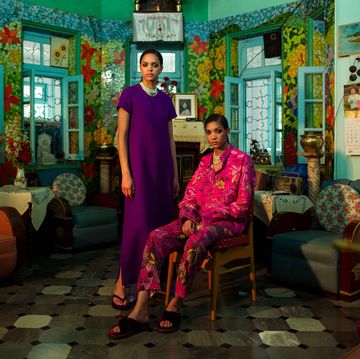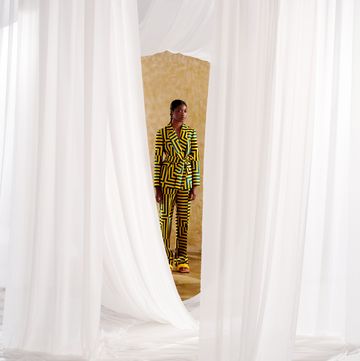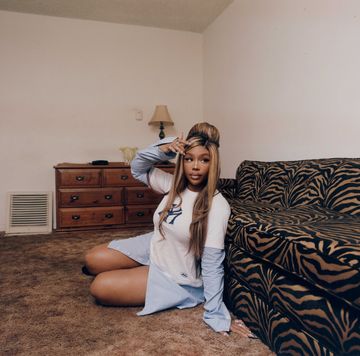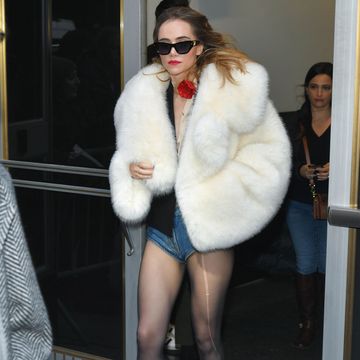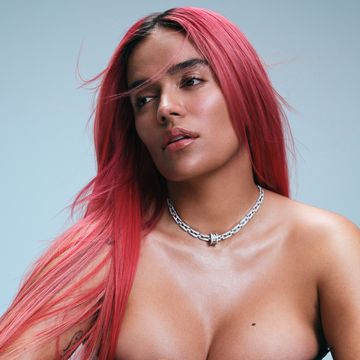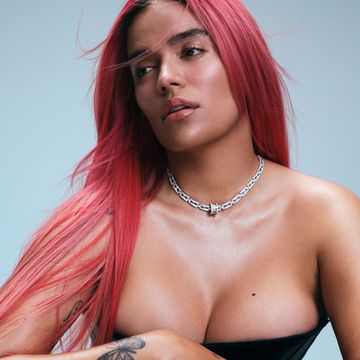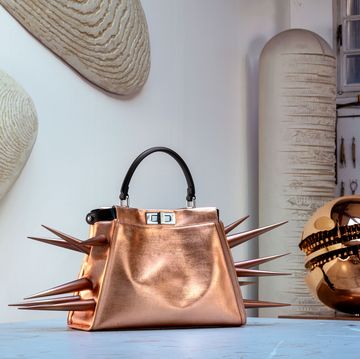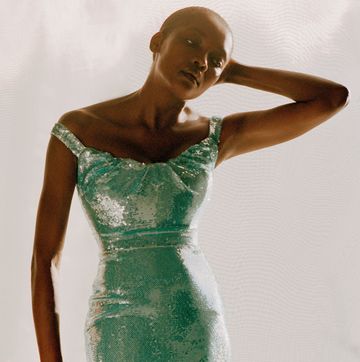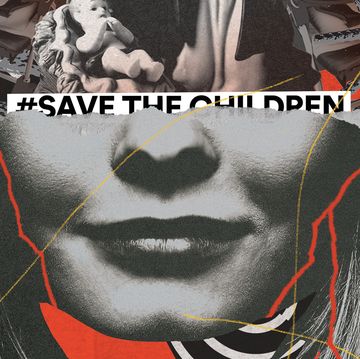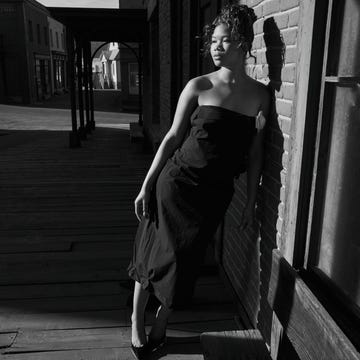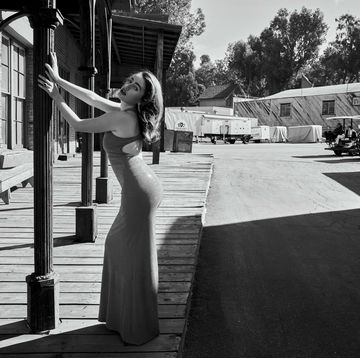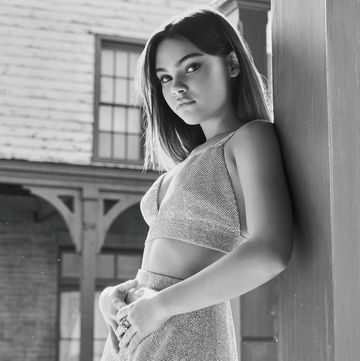If you know hardly anything about Ashley Biden, well then, her efforts up until now have paid off. She is the only child of President Joe Biden and First Lady Jill Biden—half sister to Hunter and Beau—and she has deliberately kept a lower profile. But even though she’s here being interviewed by a national magazine and has enlisted a well-connected publicist, Ashley tells me at least a handful of times during our conversation that she’s “never wanted to be in the public eye.” And she is clearly anxious about the exposure now: “Yeah, I still don’t,” she adds.
But being the First Daughter comes with a certain amount of pressure to use the platform handed to you. “It’s not like I’m going to go and become a movie star,” she says. “But I think that I kind of have an obligation in this position, if I can, to amplify the issues and to talk about what truly, truly works.”
Ashley says she is telling her story not because she wants to be in the spotlight, but because she wants to get the word out about the lessons she’s learned from her years in social work—in foster care, in juvenile detention, and, most recently, as the leader of a support group for formerly incarcerated women. “It took about two years to get into the groove of being in this position,” she says. “I’m doing my work as I always have been, but kind of figuring out the role as First Daughter, and how can I use it in the most positive way, where it’s not about me, it’s about Americans. And what I’ve learned is, I want to tell the story of others—I want to lift up organizations and share this information.”
It’s easy to understand why she would shy away from the spotlight. “It’s gotten scary,” she says. “The violence is beyond unacceptable. Everything that has happened in the past couple of years…it’s not my favorite part of it.” Not only has there been a constant fire hose of vitriol aimed squarely at her family—generally by the right for…fairly winning an election?—but Ashley herself has been a direct target. A diary of hers, left for safekeeping in a Florida home, was stolen and sold to Project Veritas, an organization known for hidden-camera videos often targeting liberals (two involved have pleaded guilty and are awaiting sentencing). Add to that the obsession with her brother Hunter (perhaps you’ve heard something about his laptop?), and it can be hard to tune it all out. “I think it’s human nature when anybody that you love dearly is attacked—wrong stuff is out there that is just complete BS—it does anger you,” Ashley says.
Her publicist says Ashley’s lawyers won’t let her talk about the diary, as the investigation is ongoing. She’s done her best to stay focused on her work amid all the noise. “I just wanted to be in the community doing the work that I love,” she says. “My life, other than having to be driven around in armored vehicles by the Secret Service, there’s not a lot that’s very different. But [the attention] has always been hard for me.”
Ashley and I meet on a sunny Wednesday morning in January at the Kimpton Hotel Monaco in Philadelphia, the same hotel where she and Beau, who died in 2015 from brain cancer, used to have breakfast every Friday after his chemo treatments. Our conversation starts with her childhood in Wilmington, Delaware, which she calls a “low-key” and “magical” time. As a kid, she went with her dad on the campaign trail and remembers “canvassing neighborhoods, parades, and all of that,” but she didn’t fully understand what was going on. “My family really did keep it super down-to-earth so I didn’t know,” Ashley says. “I knew Dad took the train and was trying to solve the problems of the world. But as a little girl, he’s just Dad.” Joe famously took the Amtrak home to Delaware every night, and Ashley says she would run and greet him with a big hug. “I would tell him he smelled like work because of the smell of his suit,” she recalls.
But before long, she got her first taste of the chatter that would swirl around her for much of her life. “When I became aware of it was when I would ride the bus to school, and people would talk about my father,” Ashley says. “The kids would talk about what they would hear their parents say. And when I would get on the bus, they would say things. Some of them kind, some not so kind. And I remember thinking to myself, ‘How do they know my father? I don’t know their father.’”
“If my family weren’t so close, it wouldn’t be so hard, but we are,” Ashley adds. “My family is my safe space. So that was the hardest thing: I couldn’t understand how (a) things were said that were not true, and (b) how people could be so cruel just because of whether they liked my father or not. It had nothing to do with me. And I just wanted to shy away from that. I didn’t find it to be healthy for me. I wanted to do my work, know who I was, and feel comfortable in my own skin without the hoopla.”
Life on the campaign trail also exposed her to other ways her family was different. “I would always question, ‘Why does my school look like this, and why does this school look like that?’ ” Ashley says. The experience turned her into a young activist. When she found out a teen cosmetics brand she loved tested on animals, she had her whole school writing letters to the company asking them to stop. When she learned dolphins were getting caught in tuna nets, she carted around posters with dolphins and facts about saving them in the halls of Congress. “I learned about injustice young,” Ashley says. “That I had a duty to not be complicit, to not turn the other way.”
She grew up close with her half brothers (who chose her name), the classic tagalong little sister. “I used to be able to hang out with their group of friends as long as I would sing a Grateful Dead song,” Ashley remembers. In adulthood, she’s a devoted aunt. Her nieces Naomi and Finnegan, 29 and 23, call her their “fiercest advocate, protector, and confidant.” When asked to share stories about Ashley, the pair recall how she cried when she met Mary J. Blige, the phase where she prank-called family members, her dance moves, and her “usually endearing” obsession with taking family photos (and “her unique ability to choose the least flattering photo of all of us”).
I ask Ashley if growing up as a Biden meant she felt somewhat obliged to devote her life to service, but she dismisses the notion. “The only thing my parents always said to me was, ‘Follow your passion,’ ” Ashley says. “There was never any pressure to go into service, but I saw my mother, a teacher, and my dad, who was working on issues Americans care about.” For a while, her parents thought she would be an entrepreneur. “They were always like, ‘Oh, you want that? You’ve got to do chores and make some money to get it,’ ” Ashley remembers. “So I used to go to the beach and collect seashells and paint them and go door-to-door selling them as soap dishes.”
She ended up earning a bachelor’s degree in cultural anthropology in 2003 from Tulane University in New Orleans. Her college roommate–turned–best friend, Seema Sadanandan, recalls a time after college when they were in DC during the Obama years, when Ashley’s dad was vice president. There was a party happening at the White House, and “I was like, ‘Ash, we should totally go to this. This is a big deal.’ And she said, ‘But how will we get in?’ ” Seema remembers. “That is the perfect example of what she’s like. She is aware of the privilege, but her inclination isn’t to figure out how to use it. She’s still Ash. She still wakes up and texts her girlfriends positive affirmations.”
After college, Ashley joined the clinical support staff at a community mental health clinic for children and their families, a position she held for four years. “That’s when I really saw this fee-for-service model for mental health and how ineffective it was,” she says. “It was kind of a conveyor belt—people were continuously coming in, and I didn’t see people getting better.” She also worked for a year at a group home for foster kids, helping 18- to 24-year-olds who were aging out of the program find jobs or enroll in educational training. “I saw all of this unhealed trauma. I could get somebody a job, but if they were dealing with panic attacks, getting to that job was often hard,” Ashley explains. “It was then that I started to say, ‘Okay, something needs to change with [the way we’re treating] mental health.’ ”
Such experiences prompted her to enroll in a master’s of social work program at the University of Pennsylvania part-time in the evenings, while she continued to work full-time during the day. She thought she wanted to be a therapist, so she did her grad school internship at Seaford House, an inpatient group home for kids. “It was very traumatic,” she says. “These one-on-ones, I would take home with me. And so then I realized I wanted to do something on a broader level, working in program development and policy reform.”
Apparently never shying away from a challenge when it came to her workplaces, in 2008, Ashley took a job at Delaware’s Department of Services for Children, Youth & Their Families, developing educational and job training programs at mental health facilities and juvenile detention centers. Four years there led to her next role, in 2012, as associate executive director and eventually executive director of the nonprofit Delaware Center for Justice, the state’s leading criminal justice organization, which provides advocacy and programming for people impacted by the criminal legal system. “My goal really when I came in was effectiveness,” Ashley says, citing a need for more clinicians in lieu of non-medical case managers.
Ashley left the center after seven years, in March 2019, to work as a surrogate on her father’s campaign. “The campaign was important to me,” she says. Obviously, things went well for the Bidens. “Everybody doubted us, and we’re here,” Ashley says of Biden’s election. “I always knew Dad would get here. I always knew. I didn’t know how, I didn’t know when, but I knew he would.”
Even though they now live in the White House, she still tries to see her parents once a week and usually talks to both of them about twice a day. “It is not hyperbole when I say my dad is my best friend,” Ashley says. “We talk all the time about everything from personal stuff to criminal justice. I think he trusts my judgment, and he’s always there to be supportive and to listen and to learn.” Her favorite moments are when they are back home together in Delaware. “The White House is wonderful, but it’s also a bubble,” Ashley says. “So I also love seeing them in the house that I grew up in, with Mom just cooking me an egg sandwich.”
She is now applying for a doctorate in clinical social work at the University of Pennsylvania, to dig deeper into the neurobiology of trauma and eventually develop her own curriculum. “I think I do have the teaching gene in me,” she notes. In the meantime, she’s consulting for clients like the Boys & Girls Club of America, as well as the UCSF–Department of Psychiatry and Behavioral Sciences on its trauma recovery center model.
Ashley also hopes to open a wellness space for women impacted by trauma in partnership with Mural Arts Philadelphia. She shows me a video of the space she’s considering renting; she envisions it as a drop-in space where women can eat a healthy meal, hit the treadmill or box, listen to guided meditation, and access therapies including EMDR and infrared saunas, which Ashley herself has found effective and wants to share with others. “I was able to get great treatment, and so I’ve been able to take some of those things that I’ve learned in therapy and use them as well,” she says. She specifically cites EMDR, or eye movement desensitization and reprocessing, which many trauma survivors have found effective at changing the way they experience painful memories. “EMDR did wonders for me when it came to my brother’s death,” Ashley says, noting that she suffered from PTSD after Beau died: “Brain cancer is horrendous, and watching someone you love go through that is horrendous.” But, she says, EMDR sessions can cost a lot and aren’t always covered by Medicaid. “If you have money and something happens, you can go to the best therapist you can find,” she says. “That doesn’t happen for people who are living in poverty.”
You may have gathered by now that trauma is a big focus for Ashley. “Hurt people hurt people,” she says. “And if we don’t break that cycle, if we don’t heal, the hurt will continue.” She’s working to bring a trauma recovery center to Philadelphia. She’s also just finished leading a support group for 15 formerly incarcerated women, and she will lead another group in March.
Her eyes light up when she talks about the women in her group, whom she met with about twice a week for four months. It’s clear the women formed a tight bond, with some even spending Thanksgiving together. They’re all on a group text that Ashley says still pings with new messages all day long. When she reads some of the texts aloud to me, she gets tears in her eyes. “When she opened up to us about her trauma, it made me connect with her even more because I’ve been in a similar situation,” one of the women in her group writes via email. “It felt like she understood us, especially me, and it was so real that she made me cry.... I didn’t want to let no one in, but Ashley has this vibe and aura that will capture you and let you give yourself away.” The wellness center she wants to open is for the women in her group, really—a way to help ensure they continue to be supported and can access services.
Ashley taught them about generational trauma and attachment theory; she brought in a Reiki instructor; they role-played uncomfortable scenarios and discussed coping mechanisms for difficult moments. For one meeting, she brought her group to a recording studio to freestyle. They performed a group song, set to Lauryn Hill’s “Doo-Wop (That Thing),” with altered lyrics, which Ashley sings for me: “World, you know you better watch out / ’cause Philly girls are only about / healing, healing, healing.” She shows me a video of the group singing it, their laughter filling the studio. “Something as simple as being able to go to a microphone and sing is helping them find their voice and try new things,” Ashley says. “To feel uncomfortable, but to do it anyway.”
Perhaps the recording session reinforced that lesson for her as well. Being sure about who she is, feeling confident as a group leader, wanting to share what she’s learned—maybe it’s all made it possible for Ashley to feel comfortable opening herself to the world, too, no matter how cold it can feel out there sometimes. “It used to anger me more. But I’m over 40 now. I’m in my skin. I love who I am. I know my family. I adore them,” she says. “So, all of the other shit, excuse my language, is just noise.”
Toward the end of our conversation, I ask Ashley about mantras she likes. “I like the saying, ‘The real flex is staying kind no matter how cruel the world gets,’ ” she says. “That’s kind of been my mission recently, to stay kind, to stay grounded, no matter how much the world tries to hurt me or my family.”
Hair by Bryona Smith; makeup by Kristina Borsello for Beauty Bar; special thanks to The Kimpton Hotel Monaco Philadelphia.
This article appears in the April 2023 issue of ELLE.

